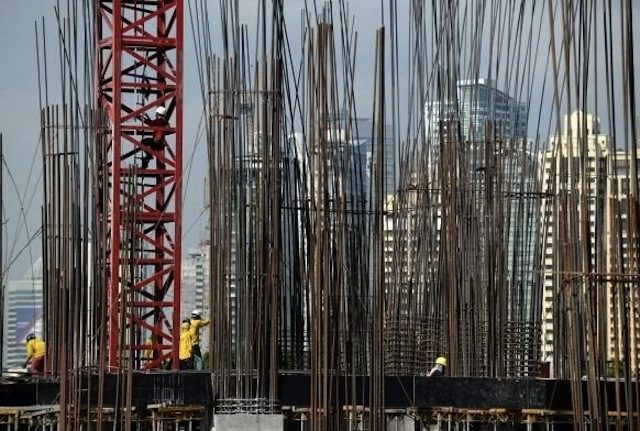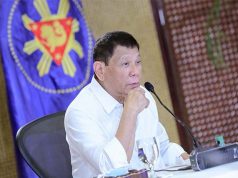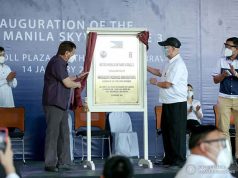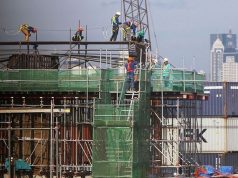MANILA – Tax reform’s ability to deliver additional revenues that will fuel the government’s P8-trillion infrastructure development program until 2022 remains a key factor in assessing Philippine economic prospects, an analyst of S&P Global Ratings said Monday, even in the face of mid-term elections next year that could make lawmakers wary of legislation that could prove unpopular.
“So we’re looking at how much new revenue will be generated by the TRAIN and whether or not execution and implementation is there,” Andrew Wood, associate director at S&P for sovereign and international public finance ratings, said in a webcast yesterday, referring to Republic Act No. 10963, or the Tax Reform for Acceleration and Inclusion Act (TRAIN), enacted on Dec. 19 last year.
The first of up to five planned tax reform packages, TRAIN cuts personal income tax rates and plugs the expected foregone revenues by either increasing or adding taxes on fuel, cars, coal, tobacco products, mining, sugar-sweetened drinks and some investment products, besides simplifying donor’s and estate taxation, among others.
The Finance department submitted another package to the House of Representatives two weeks ago that seeks to cut corporate income tax rates gradually to 25% from 30% currently in order to put this levy on a par with those of Southeast Asian competitors, as well as to remove tax incentives from sectors that do not need them.
The government hopes to submit to Congress the remaining two to three other packages within the year, ahead of the 2019 senatorial and local mid-term elections.
“To keep this expansionary fiscal policy and if infrastructure investments strategy is on track, that’s the kind of most important thing that we’re looking at in the fiscal side into the next year and a half,” Mr. Wood said.
S&P — which like the other two key debt watchers Fitch Ratings and Moody’s Investors Service has rated the Philippines a notch above minimum investment grade — estimated 2017 Philippine gross domestic product (GDP) growth at 6.6% in a report on Nov. 28 last year, against the government’s 6.5-7.5% target and 2016’s actual 6.9%, as well as S&P’s 5.1% estimate for Southeast Asia last year.
Both Moody’s Analytics and the median of a BusinessWorld poll late last week of 12 economists put fourth-quarter 2017 GDP growth — which the Philippine Statistics Authority is scheduled to report today — at 6.7%.
S&P expects Philippine GDP growth this year to slow to 6.5% against the government’s 7-8% goal and a 5.1% projection for Southeast Asia.
“We have definitely taken into consideration the tax reform packages, but particularly the TRAIN first package. A key part of this forecast is whether or not government will be able to raise revenues in line with their much higher spending on infrastructure, health, education, etc,” said Mr. Wood.
“With the passage of TRAIN in December, the government has really gotten through probably the core piece of the tax reforms to begin with.”
The Finance department expects TRAIN to yield about P90 billion in incremental revenues this year and a total of P786.4 billion until 2022. It is also banking on Congress to approve within this quarter TRAIN’s supplemental package that will seek to raise the motor vehicle users charge, provide for a general tax amnesty and relax bank secrecy restrictions, taking the first package’s cumulative additional revenues to P130 billion this year and P969.2 billion until 2022.
The second package, which the House received two weeks ago, will be revenue-neutral — as many of the other packages will be — since the entire tax reform program primarily aims to shift the burden to those that can afford to pay more.
Still, the government expects the entire program to yield about P2 trillion in total additional revenues, or about a fourth of the planned P8-trillion infrastructure expenditures until 2022, when President Rodrigo R. Duterte will end his six-year term.
Asked if he feared for reforms’ fate as next year’s mid-term elections approached, Mr. Wood replied: “I think risks are relatively contained in the Philippines right now, particularly in the political fence.”
“It didn’t come to our radar that the 2019 elections would derail that.”
Saying tax reform implementation would be “getting to the root of the bottleneck that exists in the Philippines”, Mr. Wood said that in the “medium and long run, we also expect that to provide momentum to the Philippines.”
“In the near term, it’s more in the expansionary fiscal policy and how that translates to higher growth, so were looking at that as a positive development right now.”










